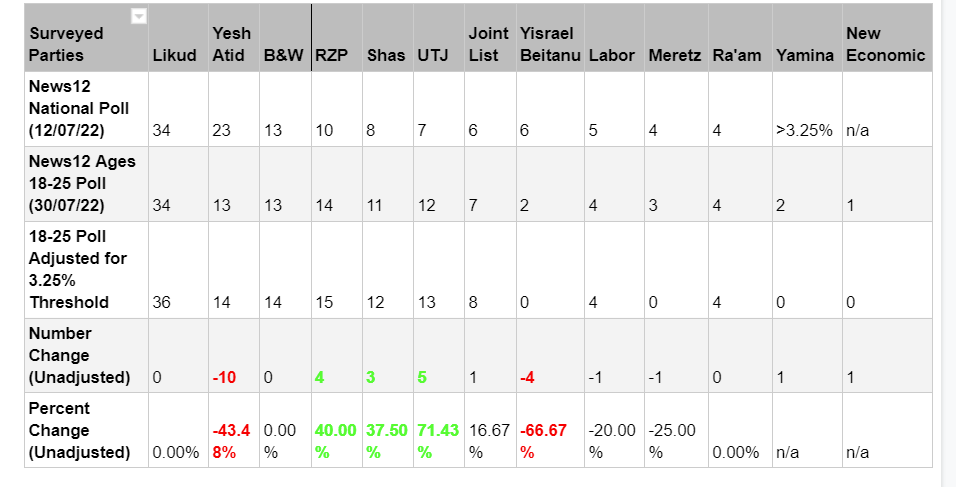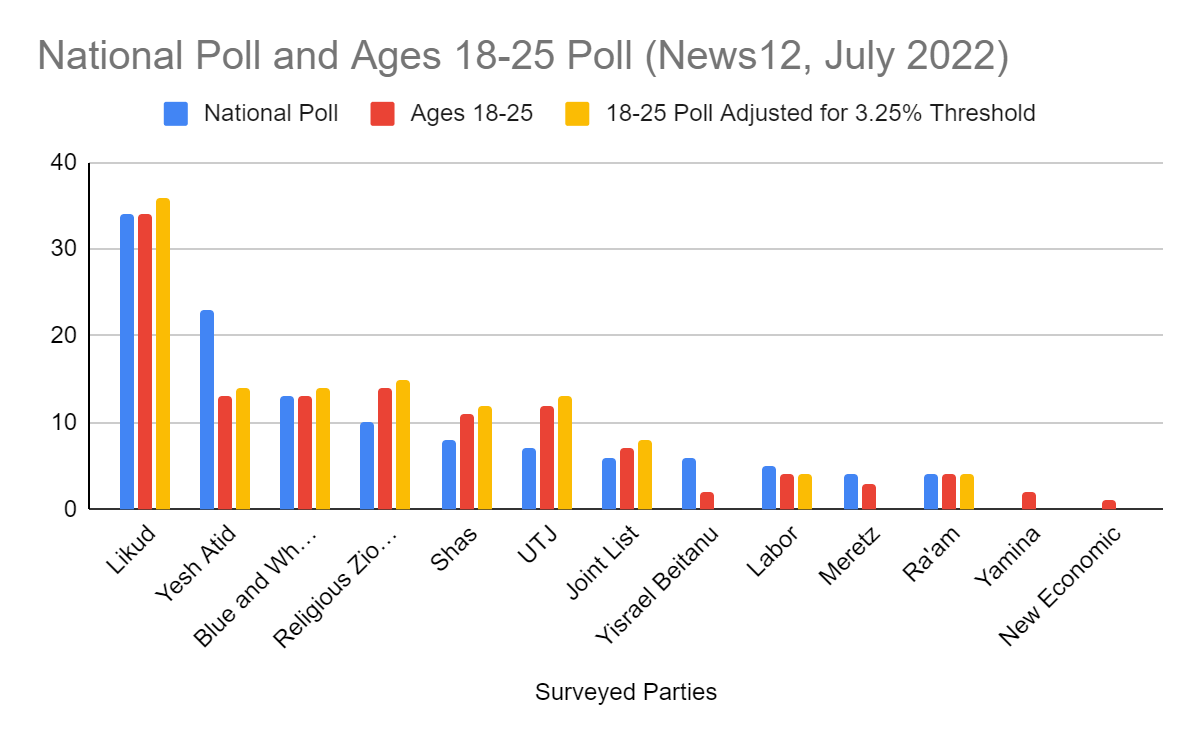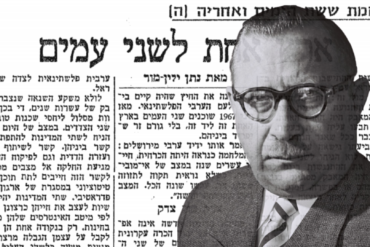Speculating on the country’s emerging demographic and cultural trends, as well as possible ramifications, is a national pastime in Israel. News 12 recently polled Israeli voters 18-25, providing an interesting contrast to their most recent national poll:

At first glance, the results of this study may seem minimal. Out of the thirteen parties polled, only five experienced multiple-seat gains or losses when comparing the general poll to the 18-15 demographic. But those five parties’ respective gains and losses yield a fascinating glimpse into Israel’s future.
The two factions that lost multiple seats in the comparison were Yair Lapid’s Yesh Atid and Avigdor Lieberman’s Yisrael Beiteinu. Both are often categorized as “centrist” (although so is Blue and White, which saw no change). The two parties are one of only five included in the poll that has been led by only one party leader in their history (the others are Yaron Zelekha’s New Economic Party, Ahmad Tibi’s Ta’al faction within the Joint List, and Benny Gantz’s Blue and White – none of which see significant changes between the polls).

What some might see as separating Yesh Atid and Yisrael Beiteinu from the others is their unique reputations for harsh rhetoric against what they would label “Jewish fanaticism.” Lapid founded Yesh Atid to be the successor to his father’s aggressively anti-ḥaredi Shinui party and has followed well in its footsteps; opposing the state rabbinate and advocating for public transportation on Shabbat.
Yisrael Beiteinu has been even more on-the-nose, adopting slogans such as “also right-wing, also secular” and “Bibi-Gantz will divide the country. For the ḥaredim!” in recent years.
Gantz has paved a much different path, at least partially embracing the ḥaredim and the state’s Jewish character. Gantz’s statement that he’s “not worried about a ḥaredi prime minister” is antithetical to the venomous rhetoric we hear from Lapid and Lieberman. In a line that has since become famous, Gantz told a ḥaredi news outlet “if you want to get an idea of what the country will look like in another 50 years, take a look at Beit Shemesh.” (referencing the successful ḥaredi town outside Jerusalem).
It would be inaccurate to say the “center” is out of favor with the youth, but entirely accurate to say that the next generation is more difficult to indoctrinate with hatred towards those outwardly expressing Jewish identity and tradition. Lapid and Lieberman’s anti-ḥaredi rhetoric may rouse octogenarians who remember the “good old days” when Israel could more easily pass as an extension of the West, but it is poison for the youth. On the other hand, Gantz’s apathy towards the subject neither helps nor hinders his relative standing with the 18-25 demographic.
The issue of “Torah and state” also seems to be at the core of the three parties that significantly gained seats among younger voters; United Torah Judaism (UTJ), Religious Zionism, and Shas. All three represent different identities, mainly Ashkenazi ḥaredim, Sephardi ḥaredim, and the national-religious/”ḥardal” communities respectively while serving as the parliamentary representatives of those Israelis most consciously connected to our Torah. Much of these gains are related to demographics and, more specifically, birth rate, which these sectors lead the nation by wide margins.
Interestingly, the Palestinian parties, United Arab List and the Joint List, only gained one seat altogether. The infamous “Arab demographic time bomb” that has struck fear into the hearts and imaginations of Israelis for decades is a dud. The political implications of Arab population growth, which is now falling under Jewish population growth among Israeli citizens, are minimal.
The insight from these trends is twofold; among the youth, Torah is hot, but reactionary backlash to those who live it is not. The Jewish character of the state is increasingly becoming less of a political cleavage and more of a consensus.
Israel politics will be forced to cater to these interests. Parties like Likud, Labor, and Blue and White, which do not see issues of religion and state as the biggest priority, will become more eager to lean into the state’s Jewishness in order to grow their base. Parties that champion our Torah and its values will have to do the same in order to prevent their voters from migrating to these parties. Parties built on hatred and divisiveness, like Yesh Atid and Yisrael Beiteinu, will have to pivot to new issues in order to stay relevant.





